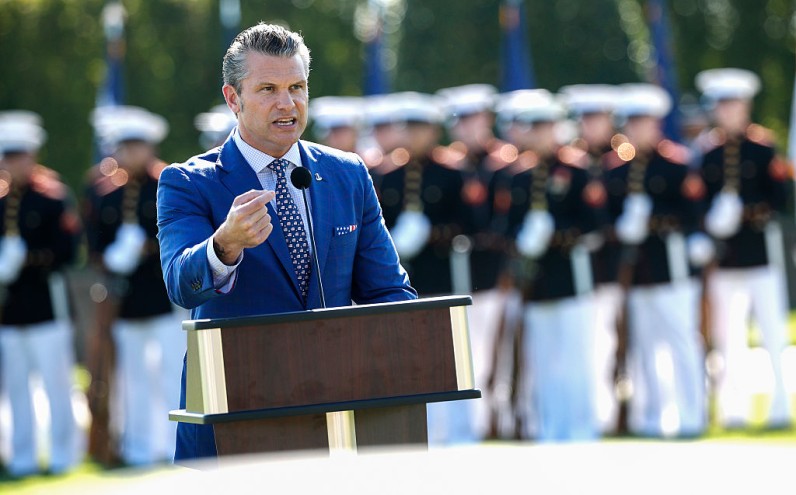
Journalists who report on the US military at the Pentagon now face strict new rules.
Starting Friday, the Department of Defense said that reporters can no longer share information — even if it's not classified — unless they get permission first.
If they don't follow the rules or refuse to sign a form agreeing to them, they will lose their press badges.
These new rules come from Defense Secretary Pete Hegseth, who defended the changes on social media, AP News said.
"The 'press' does not run the Pentagon — the people do," Hegseth wrote on X. He also added that reporters will no longer be allowed to "roam the halls" without a government escort.
The 17-page memo shared with reporters explains that all information must be approved for release, even if it's unclassified.
It also lays out rules for access to classified and "controlled unclassified information" (CUI), including requiring journalists to sign non-disclosure agreements.
If they don't comply, their access to the Pentagon could be suspended or revoked.
These new limits have sparked backlash from journalists and press freedom groups.
Mike Balsamo, president of the National Press Club, warned, "If the news about our military must first be approved by the government, then the public is no longer getting independent reporting. It is getting only what officials want them to see. That should alarm every American."
Come on MAGA defend this..
— Agent Self FBI (@RetroAgent12) September 20, 2025
The Pentagon has issued new guidelines requiring journalists covering the Department of Defense to sign a pledge agreeing to report only government-approved and officially released information, with noncompliance carrying the risk of losing press… pic.twitter.com/Kf9vKL1L2V
Pentagon Tightens Reporter Access, Requires Escorts Inside
Democratic lawmakers also pushed back. According to NBC News, Senator Jack Reed of Rhode Island called the move "an ill-advised affront to free speech and freedom of the press," and accused the administration of trying to "cover up missteps" and "obscure the truth."
The new policy also brings more physical restrictions inside the Pentagon. Reporters will need escorts to access many areas they used to enter freely.
Earlier this year, access was already reduced, with journalists only allowed in press rooms and food court areas.
The Pentagon justified the changes by saying they are needed to protect national security, especially after a few embarrassing leaks.
In one case, Defense Secretary Hegseth mistakenly included a journalist in a private chat about a potential military strike in Yemen.
Another leak revealed plans for Elon Musk to be briefed on possible war scenarios involving China — a meeting that was later canceled.
Still, many see the new rules as a dangerous step. The Society of Professional Journalists said in a statement, "This policy reeks of prior restraint — the most egregious violation of press freedom under the First Amendment."
Critics argue the government is using "security" as an excuse to control the message and silence reporters.







Join the Conversation